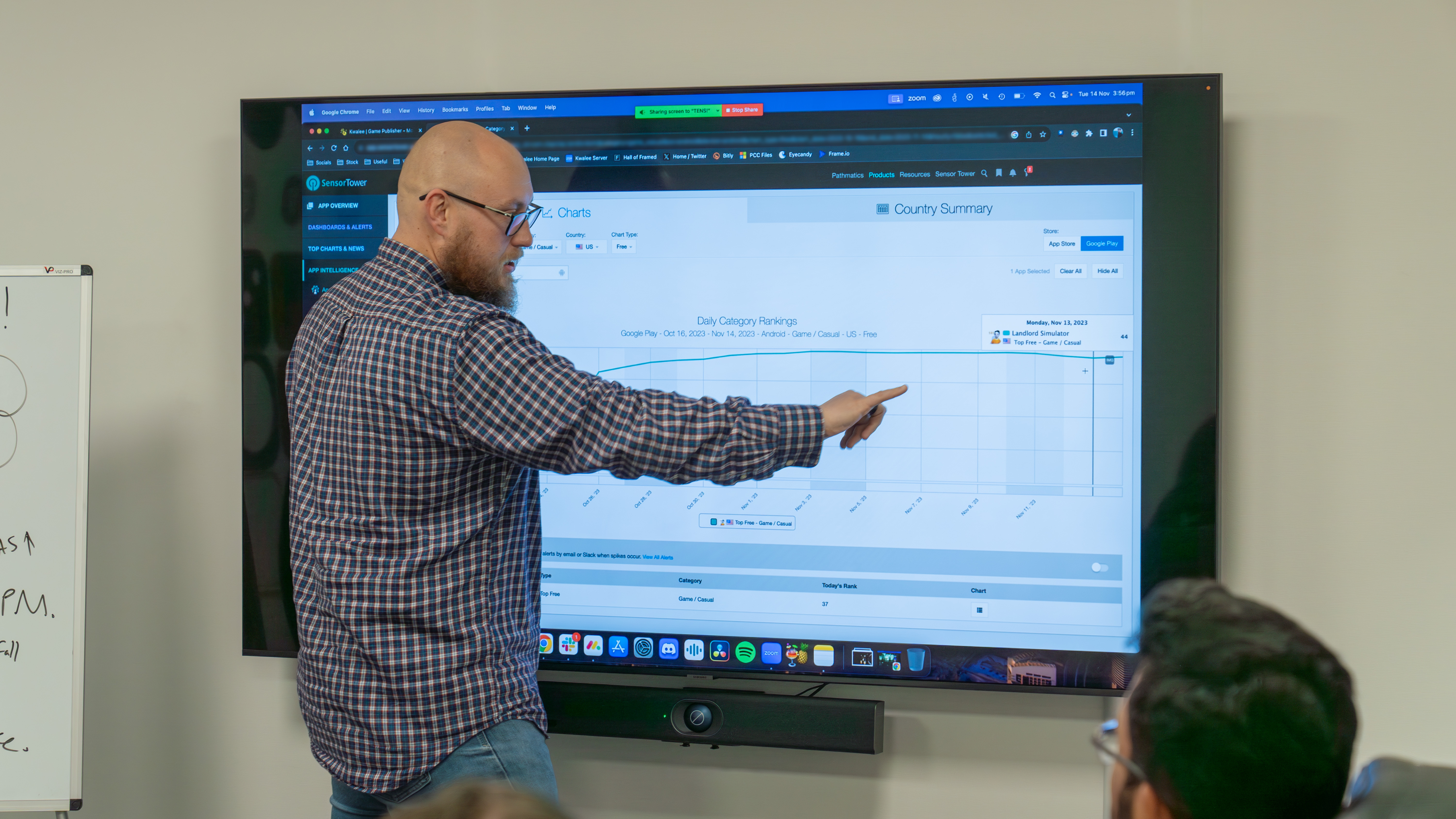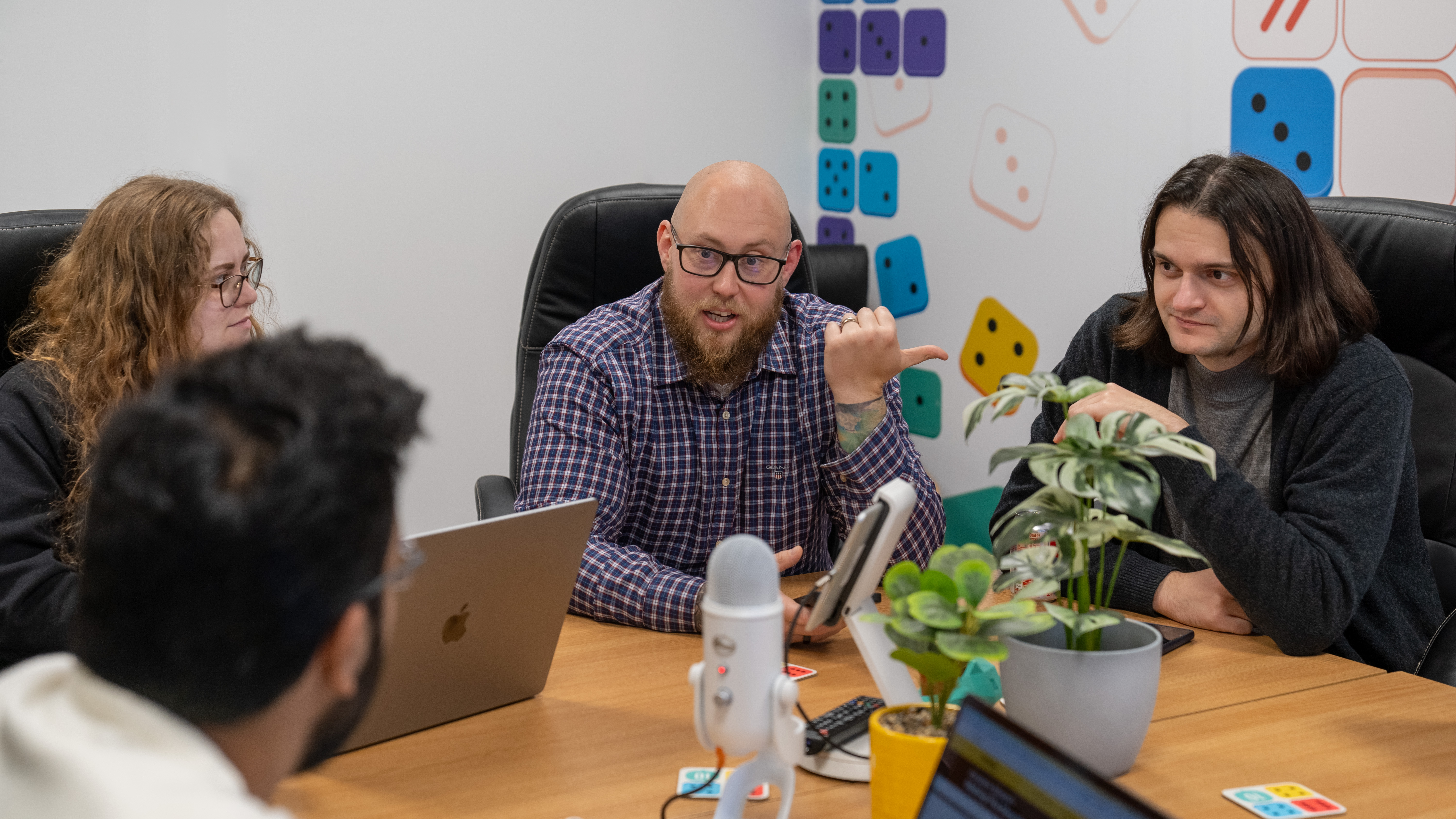About the author
John Wright
With over 11 years of experience in the AdTech/Gaming industry, I am passionate about creating engaging and profitable mobile games that reach millions of players worldwide.

Journal 41 John Wright September 12
When I started, the focus was on Casual games and IAP. Things like rewarded videos and interstitial ads weren’t as established as they are now. Back then, the strategy was to optimize for paying users – you accepted that 95% of your players wouldn’t spend any money, and it was the other 5% who essentially covered your user acquisition costs and generated profit. That was the golden age of “whales” and targeting before things like ATT and IDFA deprecation rewrote the rulebook.
Then came new ad formats that let us monetize non-paying users, which played a big role in the rise of Hyper Casual games. It’s funny because now I see some companies going back to practices from 2015 or 2016, refocusing on quality over quantity. IPM is no longer the main metric of success, and we can see this shift with the growing focus on ROAS and IAP campaigns from the big UA networks.

Lastly, AI and automation have started to take root. They’re letting studios do the same amount of work with fewer people, cutting operating costs. In a tough market, efficiency is everything, and AI, when used right, can supercharge multiple parts of your business.
As I touched on earlier, it’s never been harder to launch a new game. The odds are stacked against studios at the moment, which is why we’ve seen so many layoffs and closures across the industry. The main issues are the ones we’ve all been discussing for the past couple of years. Apple’s ATT and the deprecation of IDFA had a double negative effect. They not only made it harder to find quality users through targeting, but they also drove down eCPMs, meaning that ad revenues dropped. This hit companies that relied heavily on ad revenue the hardest, signaling the end of the Hyper Casual era and pushing developers to shift towards Hybrid and Casual games.
Monetizing users as effectively as we could a few years ago is no longer as simple, and the way we approach game development has changed. The old strategy of “failing fast” is no longer viable for most developers. The focus has shifted toward building longer, more robust games. If you look at some of the top-performing games today, many are over five years old. These studios have recognized that it’s often easier to keep a successful game alive and profitable through live operations and updates than to launch a brand-new game and try to build an audience from scratch.
As a mobile publisher, when we evaluate new partners, we follow a thorough internal review process. Our Head of Monetisation at Kwalee, Cecilia Fadul, handles the due diligence on the company, the product, and, most importantly, the value it can bring to our business. Part of this involves understanding whether it’s something we’ve worked with before, like adding a new network to our mediation stack, or if it’s an innovation, like a new ad format. Let’s use audio ads as an example.
If it’s a familiar network, the approval process is much simpler and easier to justify. But if it’s something new, we need to conduct a proof of concept. This means running effective A/B tests to see if it drive an uplift in cohort results, while also ensuring it doesn’t annoy or frustrate our users.
For a mobile game studio, more than just focusing on cost per conversion, our users are our lifeblood. Keeping them engaged and returning to our games is crucial to our long-term success and survival.
There’s still a misconception that gamers are mostly 15-year-olds living off an allowance from their parents, but this couldn’t be further from the truth. Mobile gaming has made gaming accessible to a global audience, including high-net-worth individuals who play during short breaks – whether waiting for a taxi or taking a quick break during the day.

Take the MENA region, especially Saudi Arabia, as an example. One of the key figures driving gaming forward in that region is a member of the royal family. Many campaigns have taken mobile games mainstream – one of the most memorable I’ve seen was when Gucci collaborated with Pokémon Go to create digital outfits. That was a defining moment, showing fashion brands they could leverage their brand loyalty in the digital space and see real-world benefits as a result. I’d love to see more of that – more innovative partnerships between brands and mobile games.
It would also be great to see more opportunities for brands and developers to come together and discuss how they can benefit from working with each other.
What excites me most about mobile games right now is a combination of things. First, it’s the constantly evolving nature of the industry. It keeps me sharp. Every day, there’s something new to learn or a breakthrough happening. It could be as simple as a new core game loop or mechanic that’s capturing players’ attention, or it could be an innovative ad unit or tool, like AI, that makes life easier for studios. Our industry is built on change and evolution, and while some shifts can have a negative impact, most of the time it leads to something positive and exciting.
Then there’s the people, the energy, and the overall vibe. I’m a huge extrovert, so seeing others enjoying themselves and being happy has a big influence on my own mood. As someone who started out in finance and accounting, I can honestly say the atmosphere in gaming is something special.
Lastly, it’s my team. At this stage in my career, my achievements take a back seat to watching the people I care about succeed and grow. Supporting them in their development is what keeps me going.
If you feel the same as me and want to achieve success in mobile games through a partnership of any kind, please get in touch with me and find out more about what we’re doing at https://www.kwalee.com/
About the author
With over 11 years of experience in the AdTech/Gaming industry, I am passionate about creating engaging and profitable mobile games that reach millions of players worldwide.
Please login or subscribe to continue.
No account? Register | Lost password
✖✖
Are you sure you want to cancel your subscription? You will lose your Premium access and stored playlists.
✖